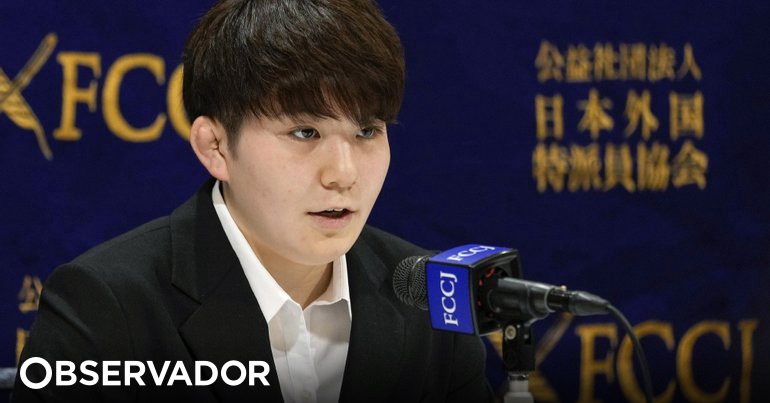
A court in Japan this Tuesday sentenced three former soldiers to suspended prison sentences of two years in prison for sexually abusing a colleague in 2021, a case that has become a new symbol of the #MeToo movement in the country.
The verdict of a first instance court in Fukushima, in northeastern Japan, is much lighter than the request by the Public Prosecutor’s Office, which had requested two years of effective imprisonment for the three defendants.
In 2022, former soldier Rina Gonoi, now 24 years old, said on social media that she was regularly harassed and sexually abused when she was in the army, following the inaction of the military hierarchy and the rejection of a first complaint before the courts.
The public statement, something extremely rare in Japanled the Ministry of Defense to reopen the case and find Gonoi in favor, after an internal investigation that led to the opening of civil and criminal trials.
The criminal aspect of the case, now decided, targeted three former soldiers accused of having simulated sexual relations with Gonoi under duress in 2021, keeping her lying down with her legs open, while other male colleagues watched the scene, laughing. .
In an interview with the news agency France-Presse (AFP), in early 2023, Gonoi assured that going public was a “last resort” solution, saying that she was more “desperate than courageous”.
The former soldier’s public accusations led more than a thousand other victims, men and women, to later report acts of harassment or sexual violence in the Japanese army.
Gonoi was named as the Japanese figure of #MeToo, a movement that has so far had relatively little echo in the archipelago, and has been the target of harassment and insults on Japanese social media.
“There is something wrong in Japan: people attack the victims and not the perpetrators” of crimes, lamented Gonoi in the interview with AFP.
Critics argued that in Japan victims are often blamed for not offering enough resistance and emphasize that people who are attacked may not be able to defend themselves.
One of the most criticized points of Japanese legislation on rape is the requirement that the Public Prosecutor’s Office must prove that the accused used “violence and intimidation”.
In June, the Japanese parliament approved increasing the age of sexual consent from 13 years, one of the lowest in the world, to 16 years, as part of a legislative reform against sexual assault.
The reform also clarifies the prerequisites for rape prosecutions and criminalizes voyeurism.
In 2019, a series of acquittals in rape cases sparked protests across the country.
Source: https://observador.pt/2023/12/12/ex-soldados-condenados-a-pena-de-prisao-suspensa-por-abuso-sexual-no-japao/

